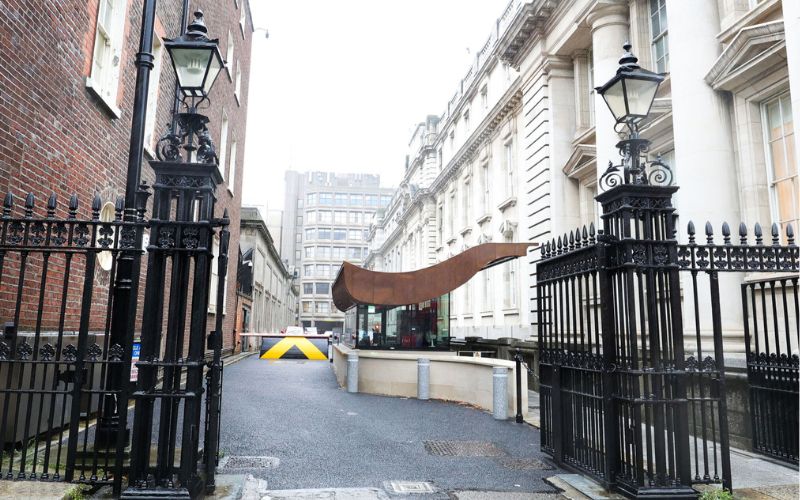"Victims of Northern Ireland’s conflict need to know how and why their loved ones died. Many have been waiting decades for answers."
On a December night in 2011, an unmarked police car near Claudy, Co. Derry pursued a speeding and erratically driven vehicle. The police terminated the dangerous chase but followed the vehicle. The 22-year-old driver lost control on a curve in the road, overturned and crashed. A 20-year-old female passenger was killed. A breathalyzer test showed the driver was 50% above the legal limit. A year later, he pled guilty to causing his friend’s death by careless driving and driving without insurance and was sentenced to three years imprisonment.
In a fashion characteristic of the justice system, the court case satisfied society’s need for accountability without easing the mother’s pain over the loss of her daughter.
The mother had unanswered questions about the events surrounding her daughter’s passing. She wanted to see the driver “face-to-face” and hear him explain why he acted as he did. She wanted to look him in the eyes and tell him about the impact of the grief and devastation he caused the family.
The mother’s quest for answers was accommodated when a meeting was arranged with the driver in Magilligan Prison. The meeting did not just happen. A lot of preparation was needed. Courage, empathy, and sensitivity to emotional wounds were required. The victim and the offender met voluntarily and agreed to have a mediator facilitate their discussion.
The offender expressed his remorse for killing his friend. He also assured the mother her daughter was not alone during her final moments and police and emergency workers were with her. Although the mother could not forgive him, the meeting lifted her heavy heart to a better place.
The mother’s remarkable story inspired a former State Attorney General in Australia to work with authorities in Victoria, Australia to make victim-offender meetings part of their restorative justice system. Also, at next week’s International Institute for Restorative Practices World Conference in Toronto, Canada, a former Governor of Magilligan Prison will include the mother’s story in his presentation on “Sustaining Restorative Justice Practices in Northern Ireland Prisons.”
Although unusual, restorative justice engagements like this fill a gap in the justice system by addressing the feelings of victims. Every victim needs to understand why the crime happened. Victims also need to tell their story about its impact. Offenders can make things right, at least in a moral sense, by acknowledging what they did was wrong. As this case shows, the victim-offender mediation process begins to repair the harm caused by the crime and can lead to reconciliation and healing.
The South African Truth and Reconciliation Commission is an example of victim-offender dialogue writ large.
The Commission’s victim-friendly process welcomed, respected, and encouraged victims to tell their stories at public hearings. In exchange for amnesty, offenders acknowledged their guilt at public hearings and fully disclosed what they had done.
Commission Chair Archbishop Desmond Tutu believed “story-telling” was necessary for healing “a traumatized and wounded people.” It was, he said, “a powerful way to restore harmony.”
Having an official forum where people could share their personal stories played an important role in South Africa’s peaceful transition from apartheid to democracy. And, it helped build national unity.
The Commission exposed the truth for all to see, which allowed for a national debate about what had happened. Revealing the truth about the Troubles is something Northern Ireland needs in order to move forward.
Some of the institutions proposed in the 2014 Stormont House Agreement were aimed at accomplishing this.
An Oral History Archive was to be created to collect stories and share experiences of those impacted by the conflict. An Independent Commission on Information Retrieval was also supposed to be created, where victims could receive information privately about Troubles-related deaths of their loved ones. Paramilitaries and members of the State would furnish information that could not be used in criminal and/or civil proceedings.
The Stormont Agreement has not been implemented, so these institutions have yet to be established.
Just like the mother’s quest for answers about her daughter’s death, victims of Northern Ireland’s conflict need to know how and why their loved ones died. Many have been waiting decades for answers.
Knowing the truth is fundamental to their individual healing, which makes it fundamental to achieving societal healing as well.
The Belfast/Good Friday Agreement marked its 20th anniversary recently. The 20th anniversary of the island-wide vote affirming the Agreement, and showing “overwhelming public support” for it, will occur next month.
The Agreement did not set forth a way of dealing with the legacy of the past. But it recognized that it “is essential to acknowledge and address the suffering of the victims of violence as a necessary element of reconciliation.”
Twenty years later is long past time to do so.
Read more: From Troubles to peace – rare Northern Ireland archives go online
This article was submitted to the IrishCentral contributors network by a member of the global Irish community. To become an IrishCentral contributor click here.




Comments